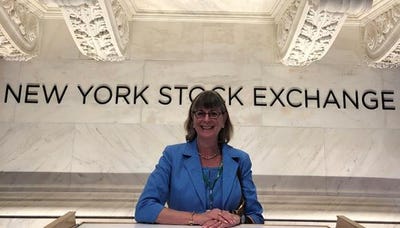First Quarter 2024 Highlights—It’s a Margin Story for Solid Waste
Over the past two weeks, the publicly-traded solid waste companies reported strong first quarter earnings and held upbeat follow-up conference calls. In this edition of Business Report, we present the highlights, and note the few differences, from the reports and calls.

Over the past two weeks, the publicly-traded solid waste companies reported strong first quarter earnings and held upbeat follow-up conference calls. In this edition of Business Report, we present the highlights, and note the few differences, from the reports and calls.
Price Led Organic Growth Once Again; Volumes Even Messier
Pricing came in at or above analysts’ expectations for almost all the companies, with Waste Connections (WCN) and GFL Environmental (GFL) leading the pack with core solid waste pricing of 7.8% and 7.7%, respectively, while WM (WM) and Republic Services (RSG) reported strong yield of 5.1% and 6%, respectively. Casella Waste (CWST) was the only exception, reporting core solid waste pricing of 5.5%, which though characterized as still strong, was a touch below analysts’ expectations. Although pricing is still largely expected to trend down during the course of the year, the strong first quarter start puts all the companies on pace to meet or exceed their full year price targets.
Volume was largely negative and even messier than the prior quarter in terms of cross currents, though perhaps not as surprising as last quarter. The only exception was WM, which eked out a 0.3% gain in collection and disposal volumes. That said, WM management cited some softness in temporary roll-off volumes and noted that the modest change in full year topline growth guidance was due to in part to slightly lower volume expectations of around 0.5%. Although GFL reported substantially negative volume of -3.0%, that was actually better than management had expected. Although weather had an early negative impact in January, the milder weather in GFL’s colder regions were an offset later in the quarter. Thus, the bulk of GFL’s negative volumes stemmed from the intentional shedding of low-margin contracts, which has been a factor for several quarters now. Weather had a bigger impact on WCN’s and RSG’s volumes, accounting for a roughly 100 and 50 basis point drag on total volumes, which were down -3.8% and -0.9%, respectively, but that was largely unsurprising to analysts. RSG also noted some impact from weaker construction activity on volumes. CWST experienced a slightly worse volume decline than generally expected at -2.8%, in part due to idiosyncratic factors in its construction and demolition (C&D) disposal line. Aside from weather, intentional shedding of unprofitable business in the residential line remained a theme for most of the companies, with the previously noted weakness in construction or industrial (the more cyclical) lines noted more frequently this quarter by a number of the companies. All that said, and also almost across the board, municipal solid waste (MSW) landfill and commercial collection volumes remained positive, signaling relative stability in the larger macro environment, and key metrics like net service intervals remained positive as well.
Recycled Commodity and RINs Pricing Were Tailwinds as Expected
Recycled commodity prices in particular ended the quarter higher than the guidance laid out on the fourth quarter conference calls and boosted both revenues and margins overall. WM’s average recycled commodity price was $84 per ton in the first quarter versus initial guidance of $70, which has now been increased to approximately $80 per ton. This change accounts for $15 million of WM’s higher EBITDA guidance, to be discussed later. However, management also noted some negative impacts on recycling profitability from the municipal recycling facility (MRF) upgrades that are taking place and the resulting shutdowns and diversion of tons, which are expected to reverse in 2025. RSG’s average price per ton was $153 versus $130 exiting 2023. Although renewable energy credit (RIN) pricing ended the quarter higher than February guidance levels, that upside potential has to varying degrees at different companies become more muted as companies increasingly look to take advantage of rising prices and lock in more longer-term contracts than had generally been the case last year, while at the same time dampening the volatility in the business.
Margin Growth is Outsized and Above Expectations, Leading to First Quarter EBITDA Beats
Uniformly, first quarter margins were simply outsized and generally well above the expectations of both the management teams and the analysts. The strong pricing previously talked about, combined with subsiding underlying cost inflation and internal efficiency programs gaining traction, resulted in the favorable price/cost spread that had been widely anticipated, but in spades! And, higher recycled commodity pricing contributed to that. WM led the pack with 240 basis points of EBITDA margin expansion. WCN’s margin rose 160 basis points, while GFL’s solid waste margin also expanded by 160 basis points. RSG had 120 basis points of margin improvement, and CWST’s margin rose 150 basis points. Unsurprisingly, labor cost savings and lower labor turnover were common drivers of the margin outperformance, but of particular note was a general chorus that company efficiency programs, that have been in the works for some time, were really gaining traction. These efficiency programs largely centered around routing, MRF upgrades, conversion to automated side loaders (ASLs) and increased digitalization, driven by technology and automation advancements. Repair and maintenance comments were more mixed, with some companies noting an improvement in fleet deliveries, while others noted that they were still catching up. As a result, almost all the solid waste companies enjoyed solid first quarter EBITDA beats—from 2% to around 3.5%.
Full Year Guidance Looks to be Going Up
As is generally typical for the solid waste industry, WCN, RSG and CWST did not change full year guidance, despite the stellar first quarters, noting they would revisit guidance after the second quarter. However, all the management teams acknowledged that the first quarter results put them in an excellent position to exceed expectations, as there was not anything really “one-off” in the quarter to account for the first quarter upside—pricing was expected to continue to be strong and all the companies saw material further runway to go in their various technology, automation and efficiency programs. GFL raised its guidance by $15 million, which was about the amount of upside from first quarter results. WM raised its guidance by a more substantial $100 million, but both the GFL and WM raises were still considered conservative!
M&A—Still Expecting Another Substantial Year
WCN acquired a sizable E&P waste services company in the quarter, bringing total acquired revenues to $375 million year to date. Yet it noted that 2024 could end up being “one of its busiest years”. RSG got off to a more modest start, spending $41 million on acquisitions, but it still targets $500 million in acquisition spend for the year. Although CWST is focused on the integration of the two major acquisitions it made last year, it also noted a robust pipeline and expectations for an active M&A year. GFL has spent $500 million on acquisitions year-to-date but noted that it intends to remain in the $600-$650 million acquisition spend allocation it had previously laid out for the year.
Sustainability Investments on Track
Sustainability investments remained a focus, but there was little new information conveyed, which actually indicated a positive. Management teams recapped or detailed projects either just coming on line or expected this year, with the difference being that they appear to be tracking largely as expected this year, as opposed to the delays that plagued both the project timing and the capex assumptions last year. Similarly, expected contributions from sustainability investments were largely reconfirmed.
PFAS Under Discussion
Unsurprisingly, given the flurry of recent EPA actions and regulations regarding PFAS, the topic came up frequently on the follow-up conference calls. While everyone was a bit cautious in their statements as it is still early days with much still unknown, the consensus was that it would end up being a long-term positive opportunity for the industry. It was generally acknowledged that new PFAS regulations would be likely to increase leachate treatment costs, but as the costs would be regulatory driven, it was also widely noted that companies would be able to pass those costs on. There’s still a push within the industry for a legislative MSW landfill exemption from CERCLA (Superfund) liability, but a number of management teams did note that the EPA seemed to recognize that MSW landfills were “passive receivers” and would not be subject to Superfund enforcement. Given likely future remedial actions, PFAS is also widely believed to be a future opportunity, particularly for the owners of hazardous waste landfills, but secondarily MSW landfills as well. Additionally, WCN noted that these types of major regulatory actions tend to ultimately benefit the larger, well-capitalized solid waste companies and often lead to more acquisition opportunities.
About the Author(s)
You May Also Like




